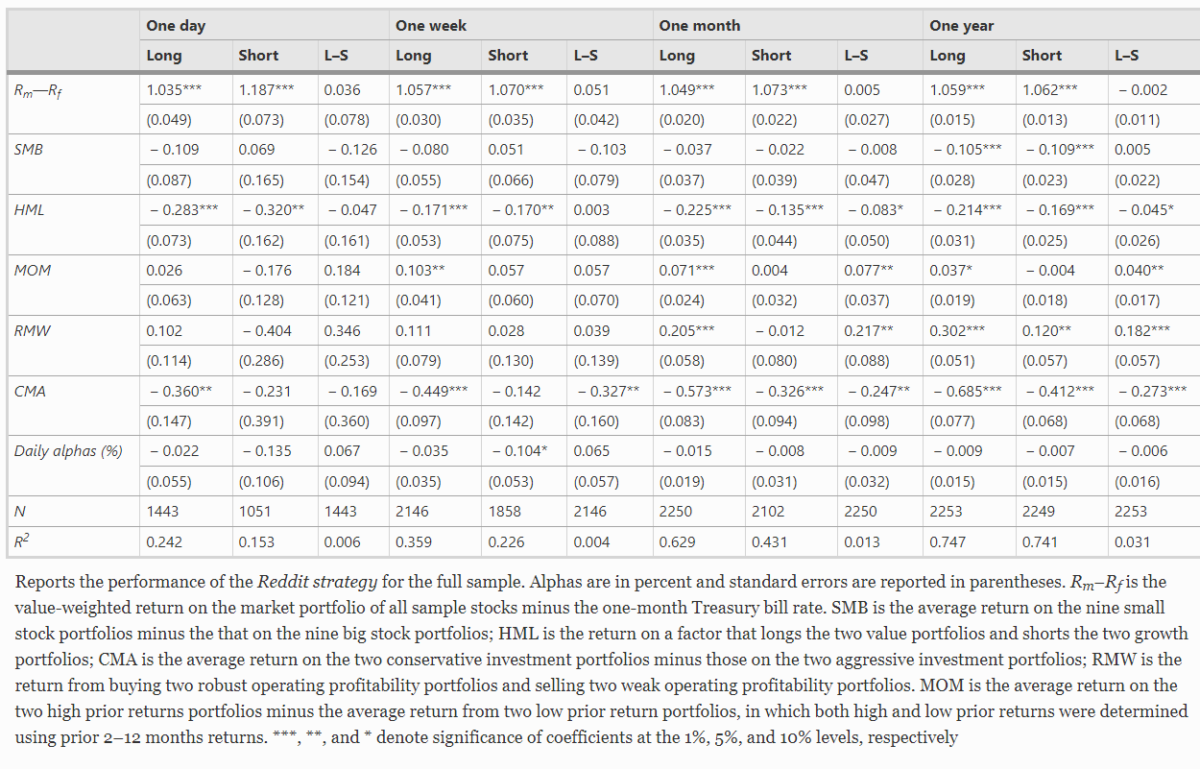A series of events has led to significantly increased interest in stock and options trading by retail investors:
- The arrival of investing platforms (such as Robinhood) with zero trading commissions and no account minimums.
- The COVID-19 pandemic, causing many workers to largely remain at home for most of 2020, leading to lower consumer spending and more time to pursue alternative ventures.
- The largest ever monetary and fiscal stimulus packages, leading to a significant increase in the amount of cash in retail investors’ hands.
The actions of retail investors gained increased attention when they began to band together through the use of online social platforms and executed strategies like short and gamma squeezes. Specifically, the actions of investors on the subreddit thread (user-created areas of interest where participants on the Reddit website discuss stock and options trading) “WallStreetBets” (WSB) have had a material impact on certain stocks such as GameStop and AMC Theatres. Their success in executing short squeezes raised the question of whether following WSB strategies was profitable.
To answer that question, Ryan Chacon, Thibaut Morillon, and Ruixiang Wang, authors of the study “Will the Reddit Rebellion Take You to the Moon? Evidence from WallStreetBets” published in the March 2023 issue of Financial Markets and Portfolio Management, investigated whether a trading strategy that follows the WSB subreddit could consistently produce alpha. Their approach was to examine how opinions on a given forum can predict individual stock prices—whether a simple and easily implementable trading strategy following WSB could produce alpha. Using textual analysis from WSB submissions over the period 2012 through the first quarter of 2021 when the GameStop short squeeze occurred, they formed a daily rebalancing long-short portfolio that went long “buy” suggestions and short “sell” suggestions, where the suggested stocks could be held for one day, two days, three days, one week, one month, or one year. Their final sample included 221,255 recommendations, 192,550 buy, and 28,708 sell recommendations.
Here is a summary of their key findings:
- Investors track and trade on WSB submission information—they believe the information is valuable.
- Consistent with the group seeking out short-squeeze opportunities, the typical short interest as a percent of float for buy recommendations was 9% compared to just 3% for the S&P 500.
- The WSB community focuses on small growth firms (the average market-to-book ratio was 24.1 for buy recommendations, 2.7 for sell recommendations, and 3.9 for the S&P 500) with high short interest for buys, and somewhat larger value firms with high short interest for sells—“Redditors” seek high-risk, high-reward opportunities.
- Redditors also tend to target firms that invest heavily (they load negatively on the investment [CMA] factor), and momentum tends to be positive and significant in the long portfolios as well.
- Across all holding periods, the long-minus-short portfolio failed to produce alpha that was distinguishable from zero. In addition, the long portfolio across every holding period was negative, inconsistent with achieving good performance.
- Their findings were robust to various tests, including whether the strategy was bullish (when investor sentiment, as measured by the put-call ratio, was high) or bearish (when investor sentiment was low), and weighting the buys and sells by the number of recommendations.
- The pre-2021 results were very similar to those of the full sample regarding alphas and many of the factor loadings, alleviating the concern that the results were driven only by the recent GameStop and other meme stock trading activities.
Reddit Strategy Performance

The results are hypothetical results and are NOT an indicator of future results and do NOT represent returns that any investor actually attained. Indexes are unmanaged and do not reflect management or trading fees, and one cannot invest directly in an index.
Recognizing that there is likely heterogeneity of skill across posters, they identified the top 40 (1.6% of the posters) by submission volume and examined their performance. Using a two-day trading window following the buy or sell submission, and benchmarking returns against the Fama-French five-factor model (market, size, value, investment, and profitability) plus momentum, they found a wide range of performance across the top 40, ranging from an average of 14.86% long-short cumulative abnormal returns (CAR) to a -14.73% long-short CAR.
The average long-short CAR for the top 40 posters was 0.25%, and the median was -0.38% (more top posters had negative alphas than positive ones), both very close to 0—the most frequent posters were no more likely to generate alpha on average.
Their findings led Chacon, Morillon, and Wang to conclude that while WSB recommendations induced trading activity, there was no evidence that WSB recommendations produced alpha: “In no cases were the buy recommendations as a group fruitful and in very few cases were the sell recommendations useful. As the viewership and contribution to this public thread have grown, alpha is equally elusive.”
Their findings are consistent with the results of the VanEck Vectors Social Sentiment ETF (BUZZ), which tracks the 75 large-cap U.S. stocks with the most bullish perception from social media and other alternative datasets. Using the backtest tool at Portfolio Visualizer, from April 2021-February 2023, BUZZ returned -24.1%, underperforming the return of Vanguard’s 500 ETF (VOO) by 25.4 percentage points.
Their findings are also consistent with those of the authors of the 2014 study “The Cross-Section of Speculator Skill: Evidence from Day Trading,” the 2020 study “Attention Induced Trading and Returns: Evidence from Robinhood Users,” and the 2022 study “Retail Trader Sophistication and Stock Market Quality: Evidence from Brokerage Outages,” who found that younger investors following social media are less financially literate, more subject to attention biases, more likely to chase stocks with extreme performance and volume than other retail investors, and exhibit herding behavior that leads to abnormal negative returns.
Investor Takeaways
Chacon, Morillon, and Wang’s findings contribute to a large body of literature that demonstrates that retail investors, on average, are naive, subject to many biases that result in adverse outcomes while the platforms they trade on prosper. The findings hopefully serve as helpful information to the droves of retail investors searching the internet for trading advice. The historical evidence on efforts of individual investors to generate alpha clearly shows that while it’s not impossible to generate alpha consistently, the odds of doing so are so poor it’s not prudent to try. If you look in the mirror and see Warren Buffett, go ahead and try to pick stocks that will outperform (although even he has not been able to outperform for the past 15 years; Berkshire Hathaway Inc. Class A underperformed the S&P 500 from 2008 to 2022). But unless you live in Lake Wobegon, where everyone has Buffett-like abilities, you will not likely see the Oracle of Omaha in the mirror. For those who don’t, the winning strategy is to build a globally diversified portfolio that reflects your unique ability, willingness, and need to take risk and stay the course, rebalancing and tax managing as events dictate.
Larry Swedroe is head of financial and economic research for Buckingham Wealth Partners.
For informational and educational purposes only and should not be construed as specific investment, accounting, legal, or tax advice. Certain information is based on third party data and may become outdated or otherwise superseded without notice. Third-party information is deemed to be reliable, but its accuracy and completeness cannot be guaranteed. By clicking on any of the links above, you acknowledge that they are solely for your convenience, and do not necessarily imply any affiliations, sponsorships, endorsements or representations whatsoever by us regarding third-party websites. We are not responsible for the content, availability, or privacy policies of these sites, and shall not be responsible or liable for any information, opinions, advice, products or services available on or through them. Neither the Securities and Exchange Commission (SEC) nor any other federal or state agency have approved, determined the accuracy, or confirmed adequacy of this article. The opinions expressed here are their own and may not accurately reflect those of Buckingham Strategic Wealth, LLC or any of its affiliates. LSR-23-473
About the Author: Larry Swedroe
—
Important Disclosures
For informational and educational purposes only and should not be construed as specific investment, accounting, legal, or tax advice. Certain information is deemed to be reliable, but its accuracy and completeness cannot be guaranteed. Third party information may become outdated or otherwise superseded without notice. Neither the Securities and Exchange Commission (SEC) nor any other federal or state agency has approved, determined the accuracy, or confirmed the adequacy of this article.
The views and opinions expressed herein are those of the author and do not necessarily reflect the views of Alpha Architect, its affiliates or its employees. Our full disclosures are available here. Definitions of common statistics used in our analysis are available here (towards the bottom).
Join thousands of other readers and subscribe to our blog.

